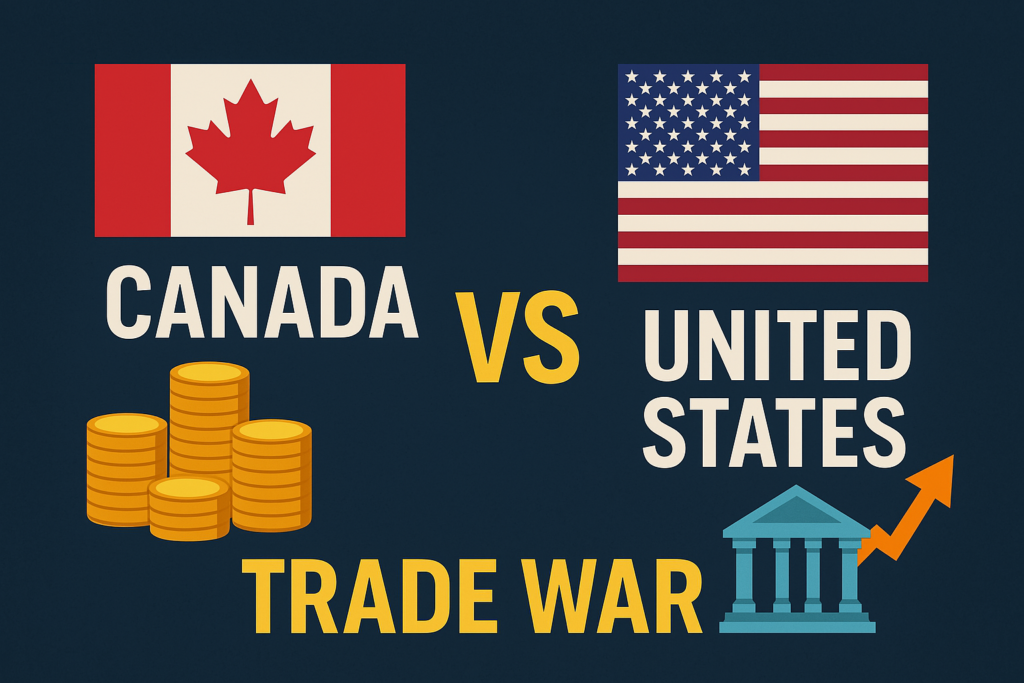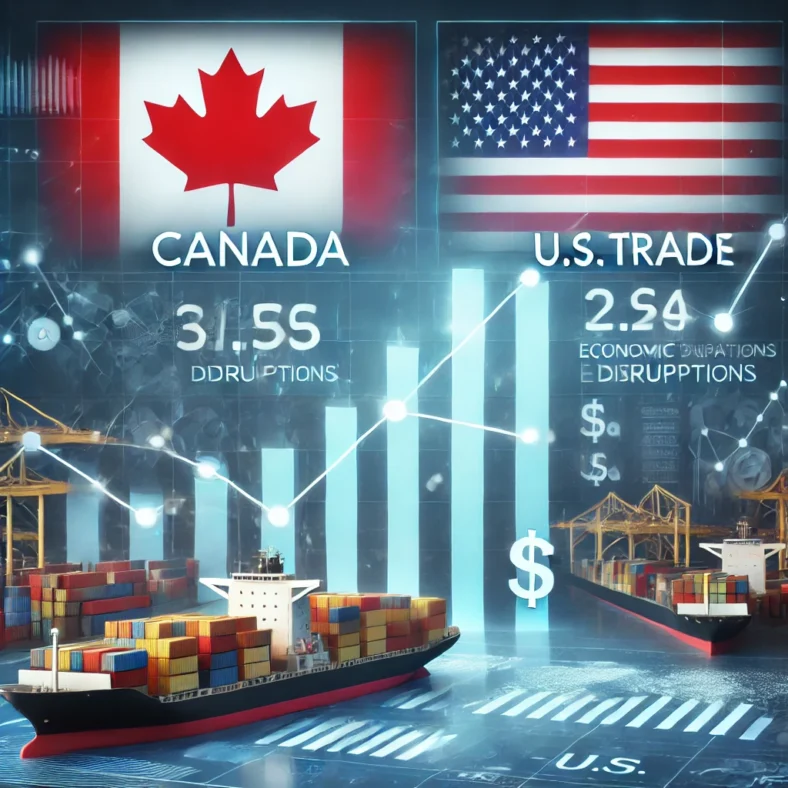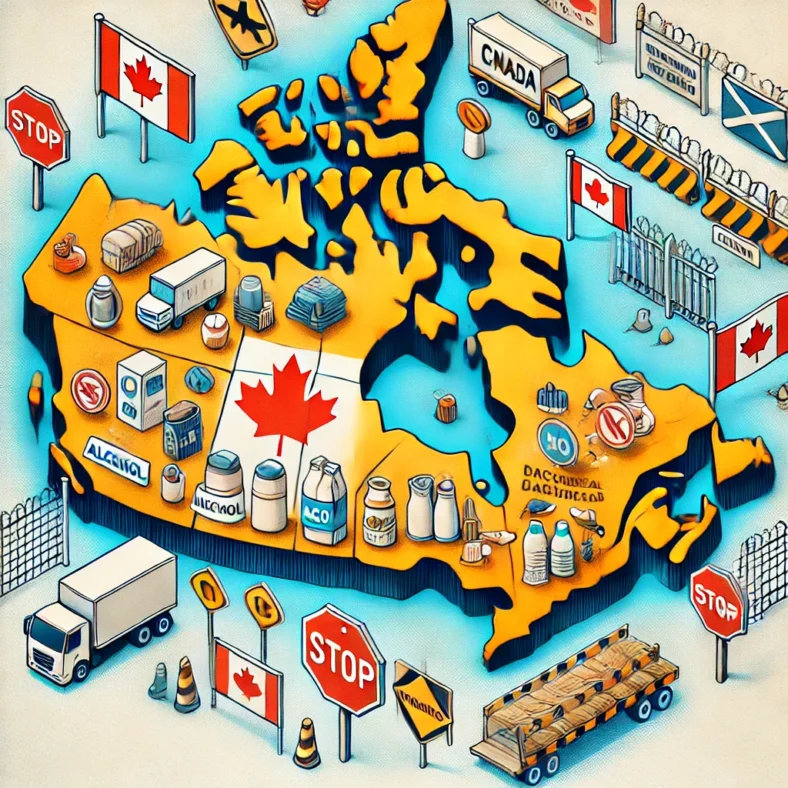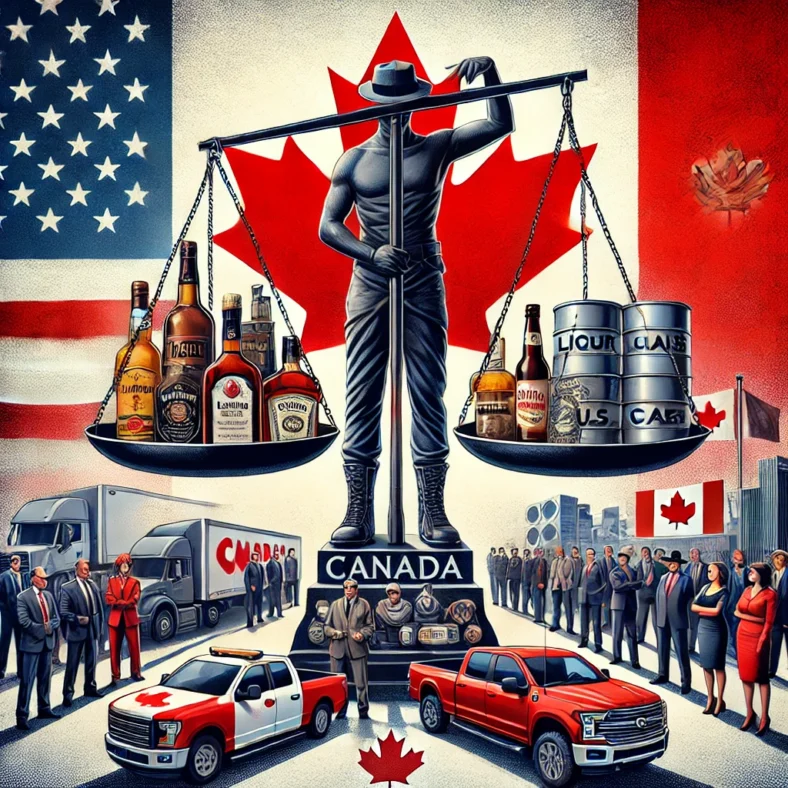Trade tensions between Canada and the United States are nothing new, but what happens if these tensions escalate into a full-scale trade war? With both economies deeply intertwined, the question is no longer who wins outright, but who can withstand the damage, adapt quickly, and emerge more resilient.
📊 Economic Size and Trade Dependence
The United States boasts a massive economy, with a GDP exceeding $27 trillion, compared to Canada’s $2.3 trillion. This size disparity means the U.S. has significantly more leverage when it comes to imposing and absorbing the impact of tariffs.
- 🇨🇦 About 75% of Canadian exports go to the U.S.
- 🇺🇸 The U.S. is less reliant on Canada, with more diverse trade partners.
Advantage: United States
🔗 Supply Chain Integration Cuts Both Ways
Canada and the U.S. share tightly integrated supply chains in key sectors such as automotive, agriculture, aerospace, and energy. Disrupting these chains would hurt both nations, but Canada would likely feel a deeper economic shock due to its higher reliance on cross-border trade.
Result: Mutual damage with higher short-term risk for Canada.
🌐 Canada’s Trade Diversification Strategy
Canada has been working to reduce its dependency on the U.S. by securing trade agreements like the Comprehensive Economic and Trade Agreement (CETA) with the EU and the CPTPP with Asia-Pacific nations. While this strategy helps in the long term, these markets cannot yet replace the economic volume of U.S. trade.
Outcome: Useful long-term buffer, limited short-term protection.
🤝 Global Support and Public Opinion
Canada often enjoys a favorable international reputation for fair trade practices. In a dispute, Canada may garner support from trade allies and global institutions like the World Trade Organization (WTO), especially if the U.S. is seen as acting unilaterally or aggressively.
Advantage: Canada in terms of diplomacy and perception.
💥 Tariff Retaliation and Economic Firepower
While Canada has previously imposed retaliatory tariffs (as seen during the 2018–2019 steel and aluminum disputes), its economic firepower is limited compared to that of the United States. The U.S. can hit harder and absorb more damage in a prolonged dispute.
Advantage: United States, but targeted Canadian retaliation can still sting in key industries.
🪨 Natural Resources as Strategic Leverage
Canada supplies the U.S. with essential resources, including oil, lumber, aluminum, and rare earth minerals. In a high-stakes scenario, Canada could use this leverage strategically, although it risks pushing the U.S. to diversify or retaliate even further.
- ⛽ Oil and Gas Exports
- 🪵 Lumber and Forestry Products
- ⚙️ Aluminum and Steel
- 🔋 Critical Minerals
Opportunity: Sector-specific leverage in times of tension.
📈 What Would Winning Actually Mean?
A trade war is rarely about total victory, it is about who can sustain damage, protect domestic industries, and secure favorable negotiations. For Canada, “winning” could mean:
- Securing WTO or global support to pressure the U.S. back to fair terms
- Effectively using counter-tariffs to influence U.S. policy
- Accelerating diversification efforts to reduce future exposure
Winning is not about overpowering the U.S.; it is about minimizing harm and achieving strategic stability.
🔮 Final Thoughts: Can Canada Win?
Realistically, Canada is unlikely to win a trade war in terms of economic might. However, Canada can still emerge in a stronger position through:
- Smart diplomacy
- Targeted retaliation
- Supply chain resilience
- Trade diversification
The best outcome would be avoiding a full-blown trade war altogether. Cooperation and negotiation are ultimately in the best interest of both nations.
📌 Stay Informed with Ratesheet.ca
Follow Ratesheet.ca for the latest updates on Canadian trade, economic trends, and financial insights that matter to you.




















